Recent Blog Posts
Should You Agree to a Field Sobriety Test?
 The National Highway Traffic Safety Administration developed field sobriety tests almost fifty years ago. What began as 16 tests was later condensed to three tests. Field sobriety tests are considered "divided attention tests," which means the goal is to determine whether an impaired suspect has the mental and physical abilities required to drive a car.
The National Highway Traffic Safety Administration developed field sobriety tests almost fifty years ago. What began as 16 tests was later condensed to three tests. Field sobriety tests are considered "divided attention tests," which means the goal is to determine whether an impaired suspect has the mental and physical abilities required to drive a car.
While law enforcement officers will almost universally ask the driver to perform these field sobriety tests if they suspect impairment, there is no legal requirement in any state that requires compliance. Most people are unaware of this, so they do as the officer asks. Many problems are associated with the accuracy of field sobriety tests, the primary one being each officer’s training, consistency, and overall ability to accurately perform the tests.
If you are facing DUI charges, whether you refused field sobriety tests or agreed to them, it is important to speak to an experienced Towson, MD DUI attorney who can build a solid defense on your behalf.
How Long Does a DUI Stay on Your Record in Maryland?
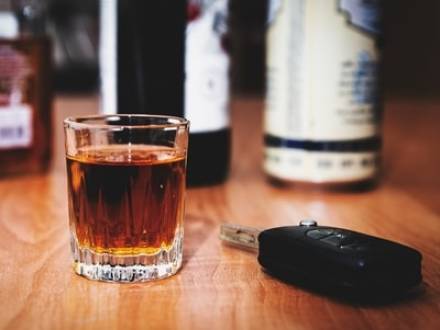 Those who have a DUI on their record know just how difficult it can make life. Prospective employers can see a DUI conviction on your record, making it much more challenging to obtain a job. Car insurance rates increase dramatically when you have a DUI – assuming you did not lose your license for six months. If you have an ignition interlock device on your vehicle so you can drive, you are likely paying as much as $100 a month for the device.
Those who have a DUI on their record know just how difficult it can make life. Prospective employers can see a DUI conviction on your record, making it much more challenging to obtain a job. Car insurance rates increase dramatically when you have a DUI – assuming you did not lose your license for six months. If you have an ignition interlock device on your vehicle so you can drive, you are likely paying as much as $100 a month for the device.
Even if you are not sentenced to jail, a DUI can alter your life in ways you may not have envisioned. You may wonder how long your DUI conviction will stay on your record. Unfortunately, Maryland is one of the few states that may keep your DUI on your criminal record permanently. If you are facing DUI charges, the best step you can take is to speak to an experienced Towson, MD DUI attorney to understand your options.
When Can a DUI Be Expunged in Maryland?
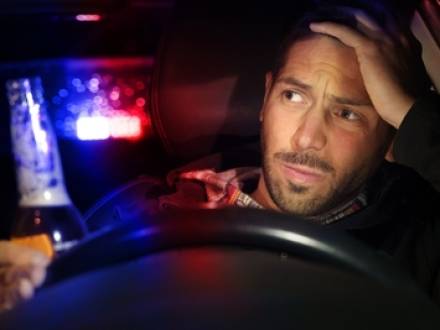 While some states allow the expungement of a DUI conviction, others, like Maryland, only allow it under a very narrow set of circumstances. The general rule in the state is that a DUI cannot be expunged - but there are certain exceptions to the rule. DUI in the state stands for "driving under the influence" which means a person is driving while impaired with a blood alcohol concentration (BAC) of 0.08 percent or higher.
While some states allow the expungement of a DUI conviction, others, like Maryland, only allow it under a very narrow set of circumstances. The general rule in the state is that a DUI cannot be expunged - but there are certain exceptions to the rule. DUI in the state stands for "driving under the influence" which means a person is driving while impaired with a blood alcohol concentration (BAC) of 0.08 percent or higher.
A slightly lesser charge is DWI, which means a person has a BAC of 0.07 percent or higher. A prosecutor can charge a person with DUI and DWI simultaneously, but the person can only be convicted on one of the charges. Under Maryland Transportation Article 21-902, the legislature defined what is considered the illegal operation of a motor vehicle while impaired.
If you are convicted of DWI or DUI, you can face serious, long-term penalties. Unfortunately, there are only a limited few exceptions where an expungement of the conviction is possible, and these exceptions have to do with how your conviction was handled. If you are facing a DUI or have been convicted of DUI and are wondering about an expungement, it can be beneficial to speak to an experienced Towson, MD DUI attorney.
Maryland DUI Charges Increase During the Holiday Season
 The holiday season typically sees more DUI arrests for a variety of reasons. There are more holiday parties where alcohol is served, there are more police officers actively looking for impaired drivers, and people tend to respond to holidays in two ways: joy/excitement or depression/sadness. Either of these responses can lead to drinking more than usual.
The holiday season typically sees more DUI arrests for a variety of reasons. There are more holiday parties where alcohol is served, there are more police officers actively looking for impaired drivers, and people tend to respond to holidays in two ways: joy/excitement or depression/sadness. Either of these responses can lead to drinking more than usual.
According to the Maryland Highway Safety Office, alcohol-impaired drivers cause at least 35 percent of all fatal crashes across the state. Additional sobriety checkpoints, law enforcement training to detect impaired drivers and community awareness campaigns have all been implemented in Maryland to reduce DUI fatalities. Driving while impaired also takes a significant toll on the drivers who are charged with DUI.
A single DUI conviction in the state can lead to fines as large as $1,000, up to a year in jail, a driver’s license suspension, mandatory participation in alcohol education programs, and, in some cases, mandatory installation of an ignition interlock device. Even after an individual has paid all these debts, he or she may face many years of extremely high auto insurance rates and difficulty obtaining employment.
Can Mitigating Circumstances Affect the Outcome of a DUI?
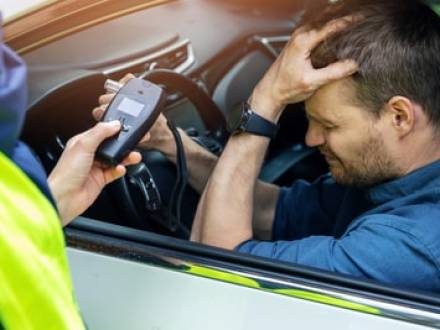 In 2022, there were 14,859 arrests for DUI across the state of Maryland. It can be frightening and anxiety-inducing to be arrested and charged with DUI. Most of those who are charged with DUI have never been in trouble with the law before, so they have little knowledge of what they need to do to ensure the best outcome possible.
In 2022, there were 14,859 arrests for DUI across the state of Maryland. It can be frightening and anxiety-inducing to be arrested and charged with DUI. Most of those who are charged with DUI have never been in trouble with the law before, so they have little knowledge of what they need to do to ensure the best outcome possible.
First-time DUI offenders are often those who made a one-time mistake and are now facing harsh penalties that could negatively influence the remainder of their lives. If you are facing DUI charges in Maryland, you could benefit from speaking to a Towson, MD DUI attorney from Kirk Seaman, LLC. Your attorney will know how to use mitigating factors to potentially reduce or dismiss your charges or reduce your sentence in the event of a conviction.
What DUI Enhancements Could You Face in Maryland?
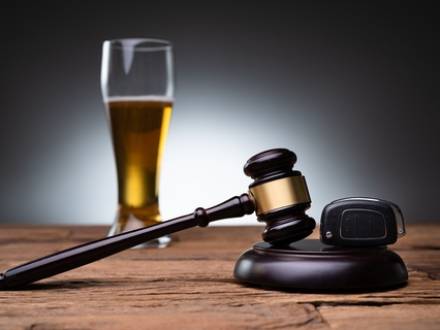 If you are facing DUI charges in Maryland, these charges are severe and have serious penalties. If your DUI triggered an enhancement, your penalties could be more severe, and although most DUI offenses in the state are misdemeanors, you could even face felony charges. If you injure or kill another person while driving under the influence, you could face separate criminal charges or could be sued in civil court.
If you are facing DUI charges in Maryland, these charges are severe and have serious penalties. If your DUI triggered an enhancement, your penalties could be more severe, and although most DUI offenses in the state are misdemeanors, you could even face felony charges. If you injure or kill another person while driving under the influence, you could face separate criminal charges or could be sued in civil court.
While a misdemeanor charge is less serious than a felony charge, you could still suffer many negative consequences from a misdemeanor conviction. This is not a situation you should face on your own. Having an experienced Towson, MD DUI attorney who can find potential weaknesses in the prosecutor’s case can be extremely beneficial.
DUI Enhancement for Having a Minor in the Vehicle with You
If you have a minor (under the age of 18) in the car with you when you are stopped and charged with DUI, you are looking at enhanced penalties in the event you are convicted of the DUI offense. Under the Maryland Transp. Code Section 21-902, enhanced penalties result when a person convicted of DUI has a minor in the vehicle at the time of their DUI stop.
Maryland Ignition Interlock DUI Law Changes Coming in October
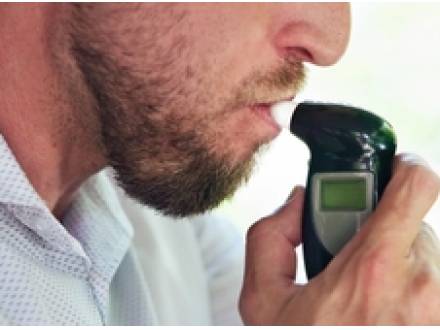 Maryland recently passed DUI legislation set to go into effect on October 1, 2024. The changes in the new law may affect many Maryland residents facing DUI offenses in the state. Those who are charged with driving under the influence of a controlled substance will not be affected by these new laws.
Maryland recently passed DUI legislation set to go into effect on October 1, 2024. The changes in the new law may affect many Maryland residents facing DUI offenses in the state. Those who are charged with driving under the influence of a controlled substance will not be affected by these new laws.
Only those charged with a DUI that involves driving while under the influence of alcohol are potentially affected. If you have been charged with a DUI in the state of Maryland, you must take these charges very seriously, as the penalties can be harsh. Having an experienced Towson, MD DUI attorney by your side from beginning to end can help you have the most positive outcome possible.
Ignition Interlock Changes to Maryland Law
As of October 1, anyone who has been convicted of an alcohol-related DUI offense, received Probation Before Judgment for an alcohol-related DUI offense, or had his or her license suspended as a result of points accumulation for an alcohol-related offense will be required to participate in the ignition interlock program.



